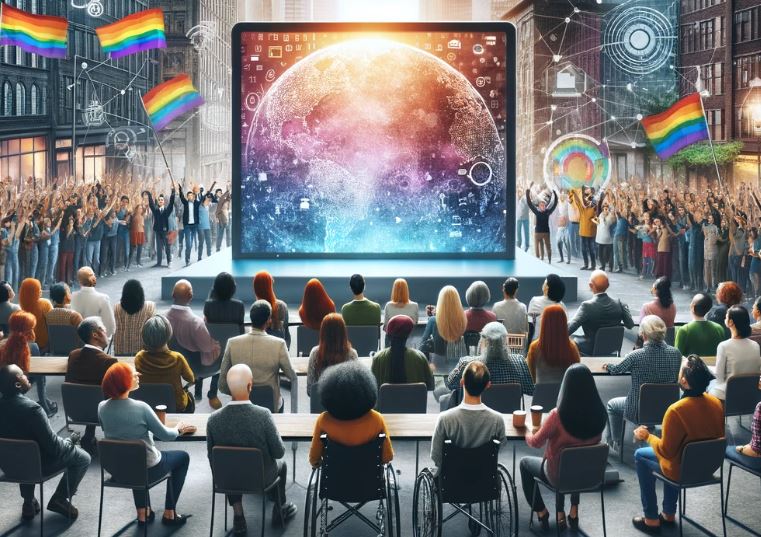Digital divide in LGBT+ community.
The Digital Disparity Affecting the LGBTI Community
ILGA World, an international organization, recently unveiled “Accessing Connection,” a comprehensive compilation of data and testimonies revealing how digital disparities impact LGBTI individuals globally, highlighting a significant “digital divide.” This initiative emphasizes the specific challenges faced by the LGBT+ community, including those identifying as lesbian, gay, bisexual, and transgender, in accessing digital technologies such as laptops, desktops, smartphones, and tablets, as well as the internet. According to ILGA World, understanding these stories is crucial for fostering meaningful digital inclusion for everyone.
Pioneering Research Launched by ILGA World
On February 20th, ILGA World launched a groundbreaking study exploring the intricate relationship between digital access disparities and the unique experiences of individuals and communities with diverse sexual orientations, gender identities and expressions, and sex characteristics. The study, conducted by The Engine Room—a nonprofit aiding civil society in technology utilization—fills a research gap by mapping out the complexities of the digital divide from perspectives of gender, race, migration status, geographic regions, urban and rural settings, indigeneity, and disability.
Online Spaces: A Mixed Blessing for LGBT+ Individuals
Daniele Paletta, ILGA World’s communications head and report editor, stated that while online spaces have enabled community building, movement launching, and advocacy, the accessibility of these opportunities is not uniform. Digital resource access often hinges on overcoming barriers tied to intersecting identity aspects. The report illustrates that while factors like data costs, location, and suitable devices affect everyone’s online capability, LGBT+ individuals often struggle with economic instability due to employment challenges, societal stigma, and hostile legislation.
The Challenges of Online Accessibility and Safety
For many LGBT+ individuals, especially those with disabilities, online platforms lack inclusive practices. The dominance of a few languages over others and the active filtering of LGBT+ content further complicate their ability to fully utilize websites, access information, and advocate for their rights. The need for safety also forces a delicate balance between anonymity and visibility online, with many facing inadequate legal protections against online harassment, especially in environments where their identities are criminalized or dismissed. Furthermore, exclusionary policies often push LGBT+ sex workers into increasingly perilous offline situations. Surveillance and restrictions on free expression are additional hurdles for human rights defenders and LGBT+ organizations, which frequently lack the resources to implement digital security measures or enhance their digital literacy.
Resilience and Innovations in Digital Inclusion
Despite these barriers, grassroots LGBT+ organizations continue to implement creative solutions to serve their communities, including those with limited connectivity. Luz Elena Aranda and Tuisina Ymania Brown, co-secretaries general of ILGA World, emphasized their front-line role in advancing digital inclusion through various initiatives such as promoting rural internet access, digital security training, legislative advocacy, document translation into local languages, and utilizing the relative safety of online spaces for organizing and community building.
Aranda and Brown conclude that while online engagement is not the only method of serving their communities, ensuring meaningful and safe connectivity could open new avenues, especially for those silenced by the digital divide. Their commitment to reaching out to those systematically marginalized, whether by digital disparities or otherwise, remains central to their mission of leaving no one behind.
INFOS | https://ilga.org













